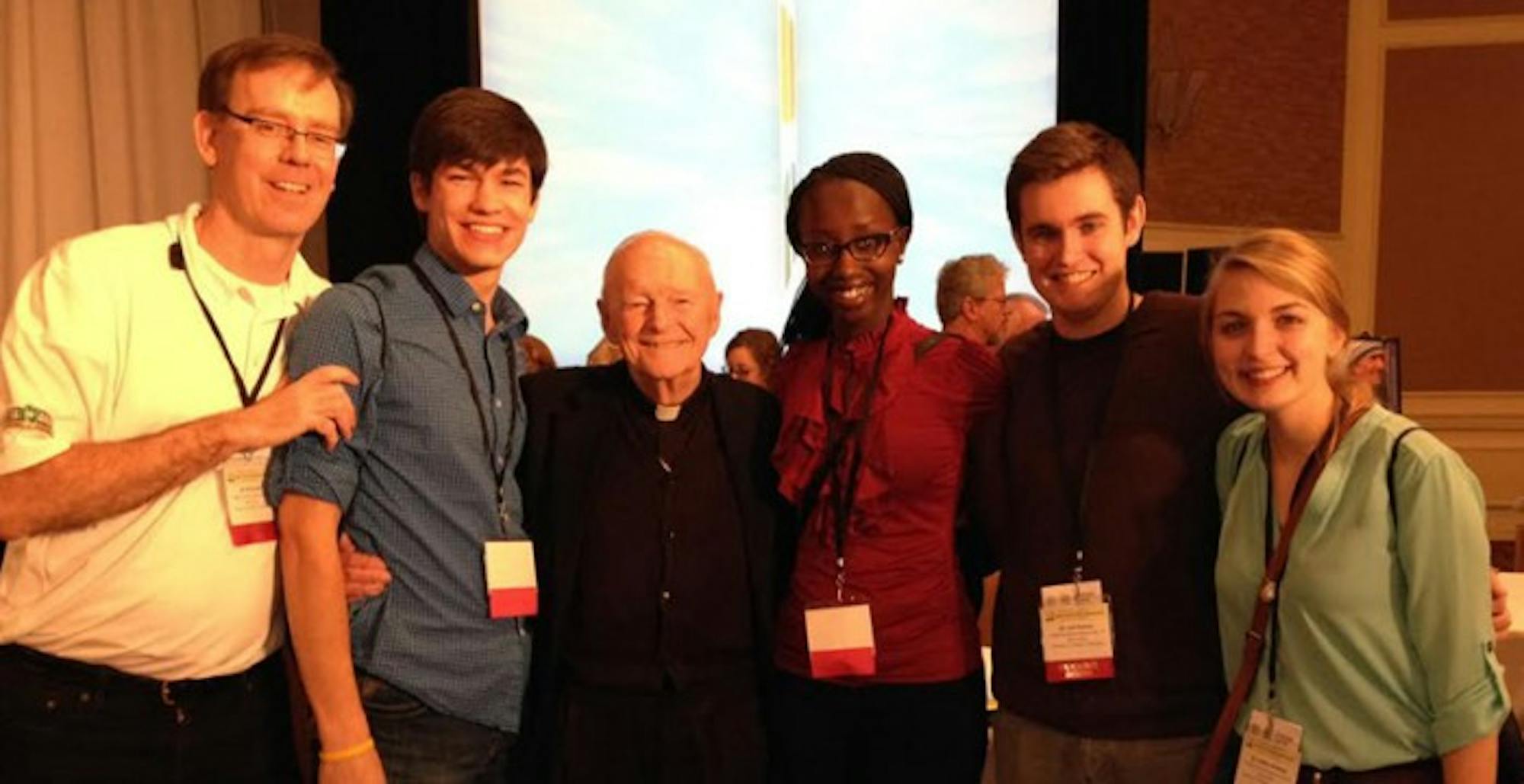A group of nine Notre Dame students and staff took part in the 2014 Catholic Social Ministry Gathering (CSMG) earlier this week, taking the opportunity to exercise both their faith and their interest in American government and meet others doing the same.
Notre Dame has sent students to the annual conference for the past 10 years, and for nine of those years the group has been led by Professor Bill Purcell, associate director for Catholic Social Tradition and Practice at the Center for Social Concerns.
Purcell said he brings students to the conference each year in order to inspire them to be more involved and seek to better the world around them.
“For me it’s a way to open students up to opportunities and a way to engage faith in vocation. I get to put the question to them ‘How are we going to change systems?’” Purcell said.
About 20 percent of the attendees at the CSMG conference, which began Sunday and ended Wednesday, were from Catholic colleges and universities. In all 26 schools sent delegations of students, faculty and staff.
Each year the conference focuses on four policy issues, two domestic and two international, and this year the topics were the minimum wage, prisons, foreign relations in the Middle East and immigration, Purcell said. The conference featured several keynote speakers, policy workshops and meetings with representatives on Capitol Hill.
Sophomore Ethan Muehlstein said the best part of the experience for him was hearing from the speakers.
“[The speakers] urged us to live out the gospel Pope Francis is trying to teach to us in his homilies and in the way he acts,” he said. “My favorite part of the conference was hearing a speech from [Cardinal Theodore McCarrick]. He was talking about how we don’t have to be perfect humans or great orators to make a difference. We just have to do the best we can at something we love with our whole hearts.”
Sophomore Kaitlyn Kennedysaid she relished the chance to meet with Congress members from Indiana.
“I felt like an empowered citizen visiting with both Indiana senators and Representative Walorski,” Kennedy said. “It was nerve-wracking to speak to them on these controversial and complex issues, but we felt confident knowing that we were not there in our own interest and that the words we were speaking were truth.”
It was significant that the group was able to meet with Senator Donnelly, Senator Coats and Rep. Walorski and get a sympathetic hearing from the lawmakers, Muehlstein said.
“Some other groups were only able to meet with chiefs of staff, so it was good we were able to meet with the people who actually make the laws and vote,” Muehlstein said. “I felt they were open to what we were telling them.”
The group was able to meet with the legislators themselves because Purcell began working to arrange the meetings in October, he said. He said the reason he makes such an effort is the importance for the students of having that experience.
“The best understanding of civics comes from being engaged in it,” he said. “Being on Capitol Hill can’t be replicated here in South Bend.”
All four of the undergraduate students in the group were sophomores, and every year the group includes sophomores because the students have time to act on their experience when they return and become leaders on campus, Purcell said.
“The reason I bring sophomores is for leadership development,” he said. “I think it’s a transformative experience for them.
“The students appreciate learning about faith and advocacy, and that faith and politics don’t have to be separate. [Attending the conference] helps them get a national and an international perspective on social concerns.”
Muehlstein said the conference helped him to understand why he was interested in social justice and motivated him to become even more involved.
“I’ve always had a passion for social justice, so this was a great opportunity to get to the theory behind why I do what I do,” Muehlstein said. “Another student and I are now hoping to get involved in the local juvenile detention center, sharing our ministry with them so they don’t feel forgotten or alone.”
Kennedy said her experience allowed her to move beyond what she was already learning about Catholic social values in the classroom.
“As a Catholic Social Tradition Minor, I have studied about what it means to live the Gospel social values in class, but this conference introduced me to people whose lives have been transformed by these values, and gave me a way to advocate for these values to be upheld in our nation.”
Purcell said the conference is organized by 16 different Catholic organizations, with the United States Conference of Catholic Bishops (USCCB) as the primary sponsor.













